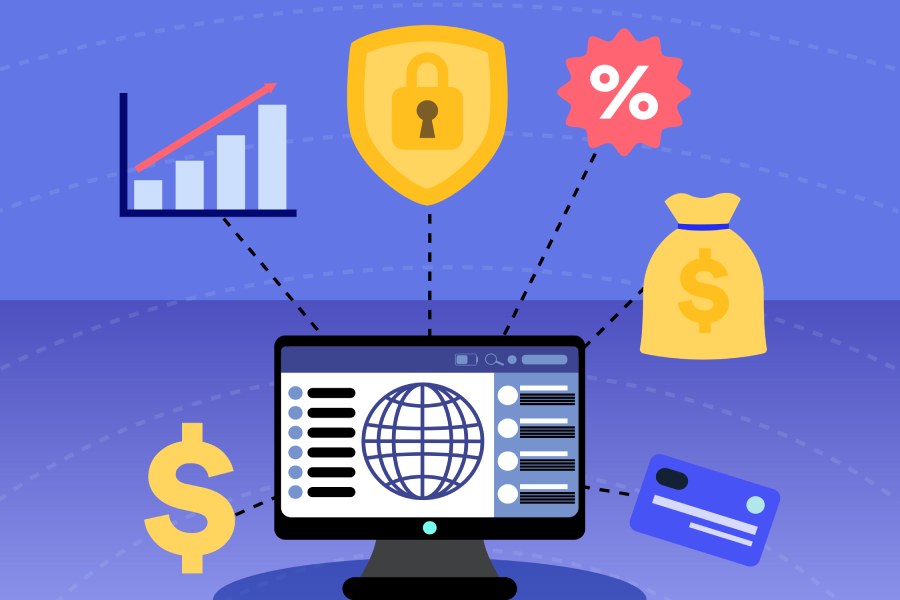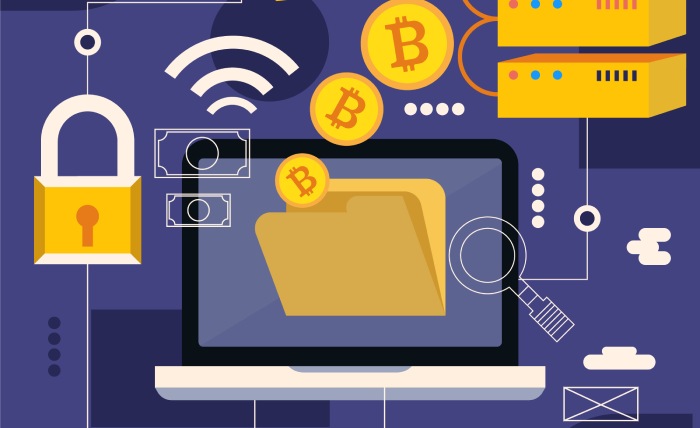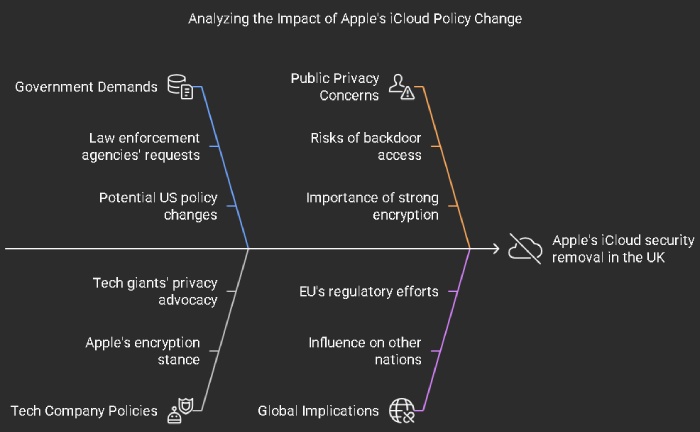Recently Apple decided to remove complete iCloud security for the United Kingdom people, and it has not gone down so well with the users. Besides, the situation is not restricted to just the UK. This action taken by Apple has now boosted the chances of security removal for USA users, too. THE FBI has been demanding ‘lawful access’ to the encrypted data of users for a long time. The UK incident can lead to similar regulations in the United States.
The increasing conflict between law enforcement bodies and the security system
This situation of conflict is not something new that people across the globe are witnessing. Government authorities and tech companies have been locking horns for years over the issue of encryption. Tech giants like Meta and Apple have been fighting hard to keep their user data private and far from the prying eyes of the government. However, law enforcement agencies demand complete access to the encrypted data, which they say would prove to be highly beneficial for investing in global crimes such as child exploitation and terrorism.
Back in 2020, cybersecurity experts said that the companies that prefer end-to-end encryption were highly likely to lose this battle against government agencies. Five years down the line, that prediction is more likely to come true. The United Kingdom’s latest move has ignited the spark for other governments worldwide, and they too can soon start demanding access to encrypted data of users.
FBI’s stance on user data encryption
The FBI has always been vocal about its concerns about data encryption. In December 2024, the FBI and the CISA (Cybersecurity and Infrastructure Security Agency) came together to warn Americans against unencrypted messaging services. They urged users to switch to more secure platforms such as Signal.
But the FBI’s definition of ‘secure’ is slightly different from your expectations. These authorities support encryption only when they get to responsibly manage them. They want a secure system whereby companies offer data encryption to the users on one hand, and share the same data with law enforcement agencies as per their requirement and court interventions.
The same incident has taken place in the UK where iCloud still remains encrypted. However, Apple does have decryption rights and can share the readable content with government agencies when legally required. Apple previously denied sharing decrypted data with the authorities. But this recent move has ruffled a few feathers.
What impact does Apple’s UK decision have on the US?
Apple, Meta, and Google are the three primary encrypted messaging service providers in the US and the UK. Apple’s UK move has set a dangerous precedent for others to follow. Security agencies across other nations, including the United States, may start pushing Apple to create similar policies on data encryption.
The argument that data encryption is of utmost necessity for public safety will get stronger with every passing day. Basically, the UK decision has created a type of model that the governments would love to adopt. Also, nations like the US can leverage the UK’s actions as valid arguments or justification against data encryption to come up with its own model of ‘responsibly managed’ data access.
What’s more important- user privacy or stringent law enforcement?
The FBI’s argument seems valid when it says that without legal access to user data, tracking terrorists, criminals, and bad actors will be next to impossible. Christopher Wray, the former FBI Director, believes that completely encrypted platforms stand as a strong barrier between law enforcement agencies and criminals. They make it difficult for agencies to gather crucial pieces of evidence.
Privacy advocates strongly oppose government agencies on this issue. Organizations like the Electronic Frontier Foundation (EFF) argue that weakening encryption technology exposes user data to significant risks. They emphasize that decryption is essentially creating a backdoor, which wouldn’t be restricted to government use alone. Instead, it could be exploited by foreign governments and cybercriminals, making sensitive information highly vulnerable.
Additionally, privacy advocates highlight that strong encryption plays a crucial role in phishing protection, preventing attackers from intercepting and manipulating communications to steal user credentials and personal data.
The global implications of the UK incident
Apple’s stance on decrypting user data for the UK government has led to global debates around user data privacy as well as data encryption. While some American lawmakers are suggesting imposing sanctions on the UK to coerce it into reversing the mandate, others believe that there’s no need to punish the UK. Rather, it will be best for everyone if the US adopts the same approach. The European Union is also trying to introduce strict regulations around data encryption.
Multiple governments across the globe have started exploring the same idea, and thus, the pressure on tech giants has increased manifolds.
Tech companies- what’s their take?
Up until now, Apple has been advocating user privacy very strongly. Back in 2023, it went ahead and stated that closing down services like FaceTime and iMessage would be way better than weakening encryption. But its recent decryption move has led to despair among users. Other tech companies are observing the situation and taking notes.
They are waiting to understand the public’s reaction. The goal is to see whether or not Apple’s decryption move faces major backlash. In case global agencies and governments go ahead and adopt the same model, tech giants like Meta and Google may also have to forcefully accept the decryption policy. On the other hand, if privacy advocates create more uproar against government agencies, then these tech giants will have to firmly resist the coercion by authorities.
What’s next?
Right now, privacy enthusiasts must consider secure options such as Signal. They should switch to platforms that offer end-to-end encryption without any kind of backdoor entry.
Meanwhile, the tension will keep simmering between government agencies and tech companies.
The outcome of the debate will decide the future course of action in the digital ecosystem. The most significant thing that you, as a user, must understand is that this clash of opinion between government authorities and tech companies is a cause of concern for everyone, irrespective of their location.



